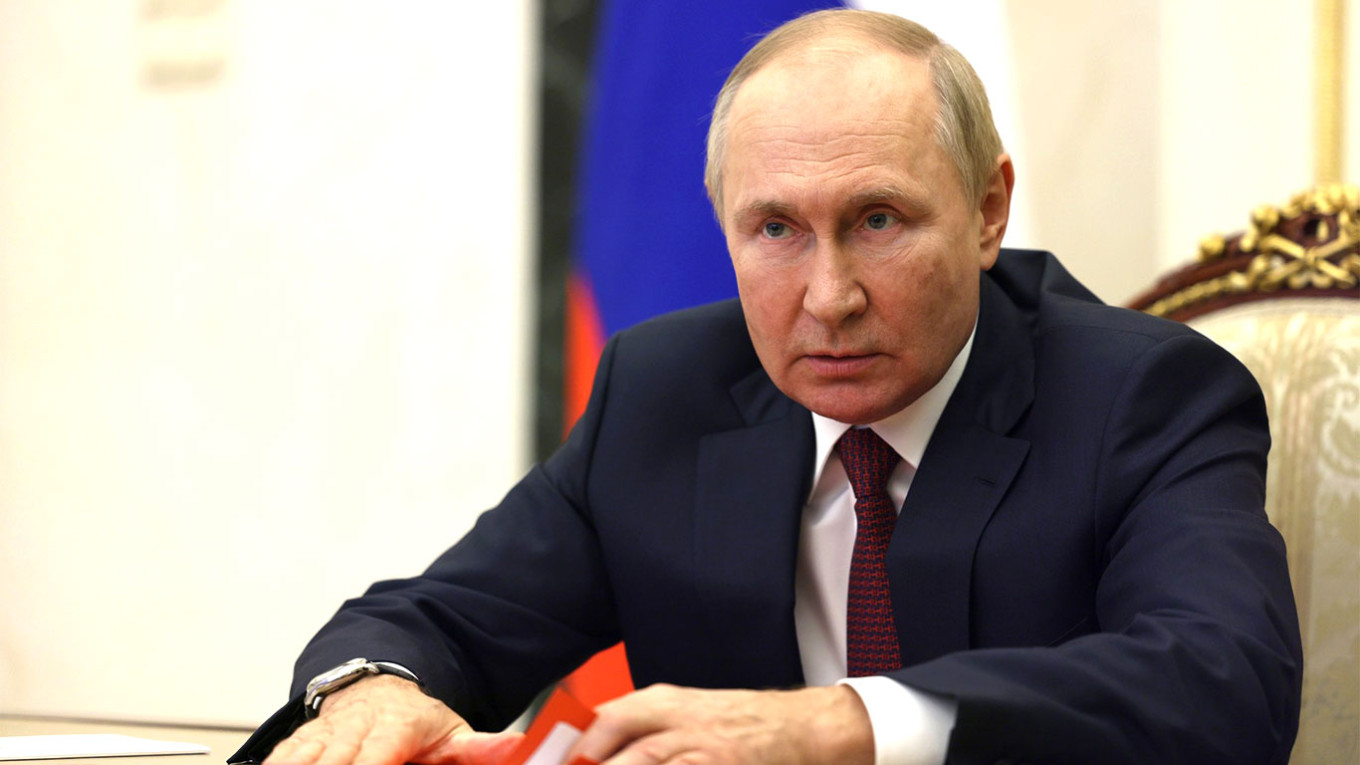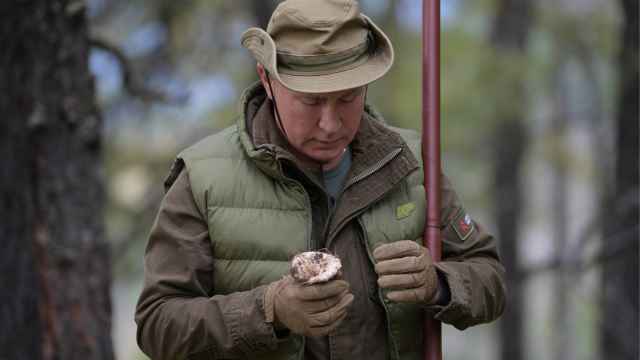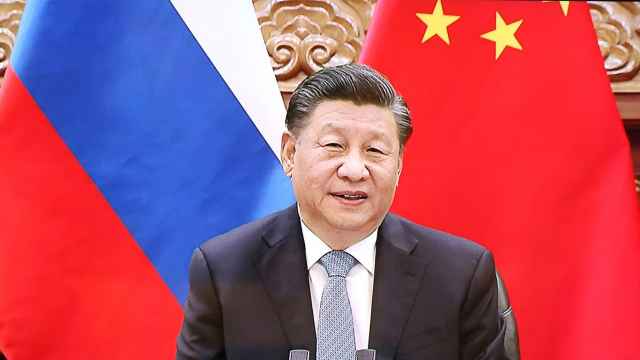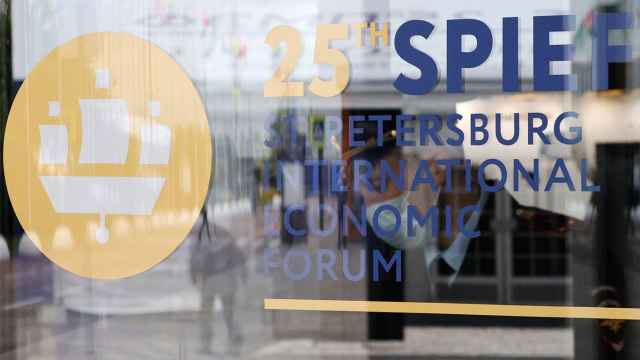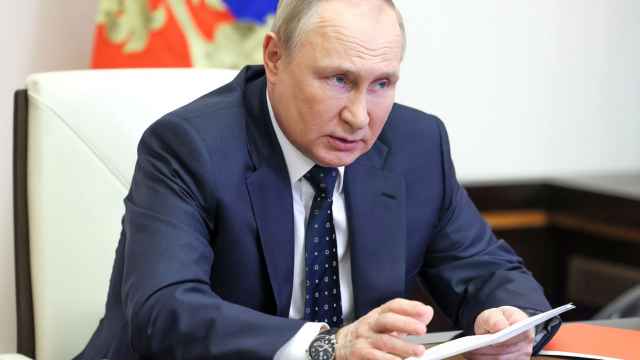Russian President Vladimir Putin will mark his 70th birthday Friday with little fanfare as the war in Ukraine, which has killed tens of thousands and plunged Russia into economic and international isolation, continues to rage.
In past years, Putin has celebrated by taking foreign trips, hiking in Siberia with Defense Minister Sergei Shoigu or playing in a celebrity hockey game.
But Putin will spend his birthday this time round at work, attending a meeting in St. Petersburg with heads of state from a Russia-led political bloc.
As he enters his eighth decade, Putin has rarely looked more politically vulnerable with Russia suffering a series of major battlefield defeats in recent weeks at the hands of the Ukrainian army. And the mobilization of tens of thousands of military reservists that Putin announced last month has been marred by mistakes.
“Discontent is growing,” political analyst Abbas Gallyamov, a former speechwriter for Putin, told The Moscow Times.
The only major birthday celebrations for Putin look set to take place in the North Caucasus republic of Chechnya.
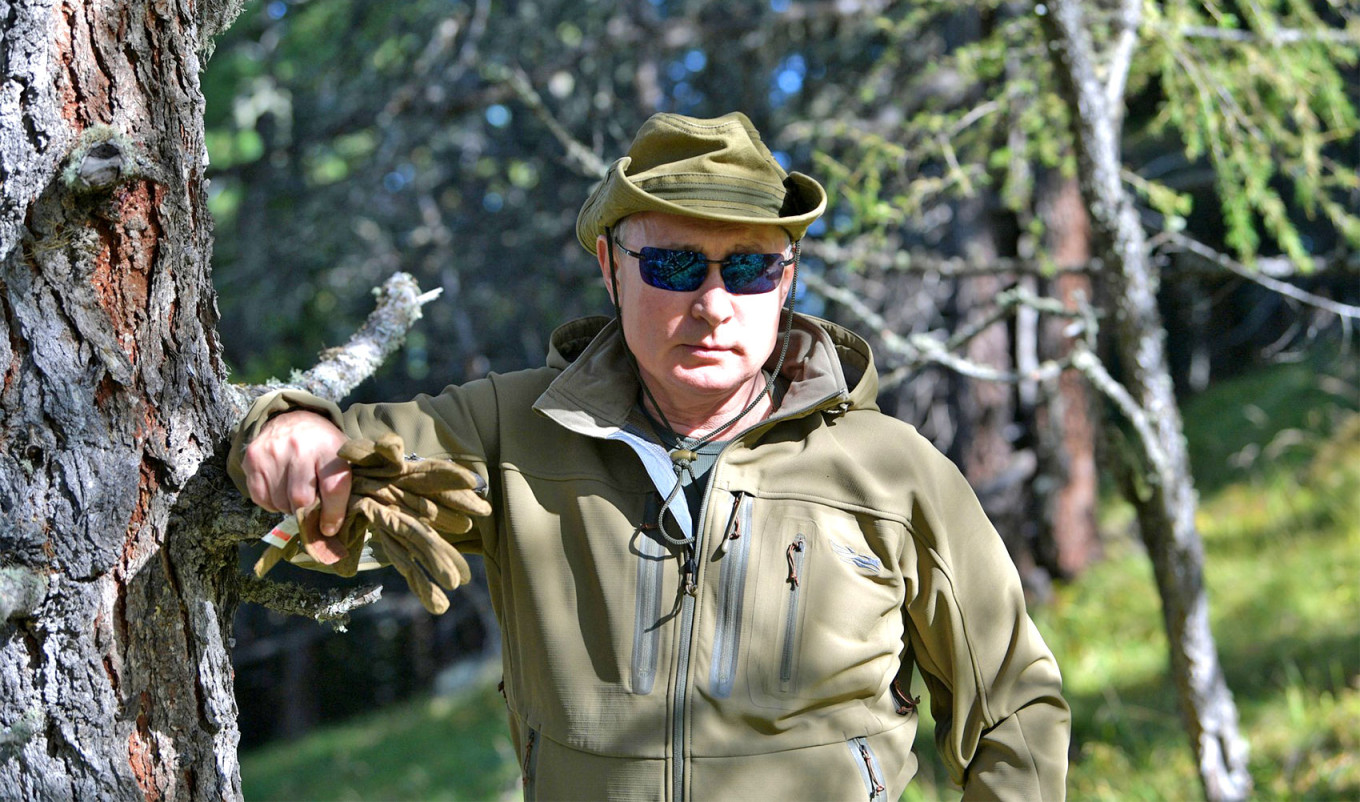
Chechen leader Ramzan Kadyrov has promised “big events,” including horse racing and an opening ceremony for a judo training center named after Putin, a known martial arts fan.
“The peoples of Russia are very lucky to have such a president,” Kadyrov said Tuesday in a post on the Telegram messaging app. “Celebrating the 70th anniversary of our president, we show the whole world how much we appreciate him.”
And in St. Petersburg, Putin’s hometown, a local artist will exhibit Friday his “Putin with a Puppy” piece — a two-meter by two-meter painting showing Putin cradling a young dog.
“I portrayed Vladimir Putin as a hero of simple human stories,” artist Alexei Sergienko said Thursday in an interview with the local Spbdnevnik media outlet.
But the events in Chechnya and artwork in St. Petersburg are much more modest than celebrations of Putin’s birthday in previous years, when the president was gifted dogs, tiger cubs — and even calendars featuring female students in bikinis.
One of Putin’s preferred ways to spend his birthday in the past has been at meetings with foreign leaders, often abroad.
In 2013, Putin was at the annual Asia-Pacific Economic Cooperation summit in Bali, drinking vodka and eating a birthday cake with Chinese President Xi Jinping and Japanese Prime Minister Shinzo Abe.
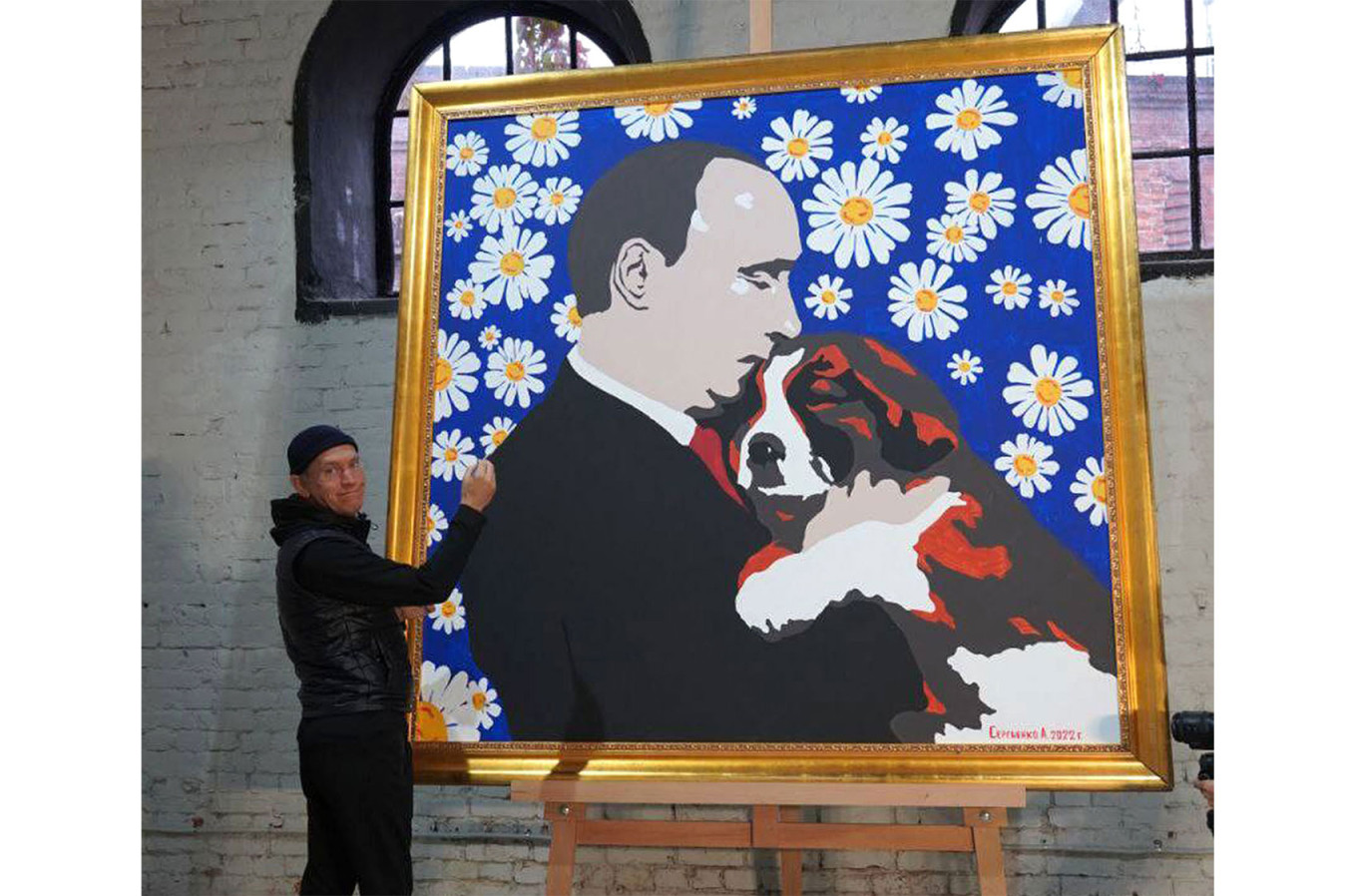
He has also celebrated with his old friends and European politicians Silvio Berlusconi and Gerhard Schroeder.
But, with Western sanctions on Russia over the invasion of Ukraine and even the Chinese and Indian leaders expressing disquiet about the ongoing fighting, Putin’s options for foreign travel are much more limited.
A planned meeting Friday with leaders from the Moscow-dominated Commonwealth of Independent States (CIS) — a grouping of post-Soviet countries — is likely to be low-key.
According to Kremlin spokesman Dmitry Peskov, the leaders in attendance have known each other “for more than a decade” and are likely to “wish Putin a happy birthday,” state news agency TASS reported Thursday.
But it was not immediately clear exactly which heads of state would be attending, but they are expected to include the leaders of Belarus, Armenia, Uzbekistan and Tajikistan.
Several post-Soviet countries, particularly in Central Asia, have publicly distanced themselves from Russia since the start of the Ukraine war.
The Russian president has begun “to be seen as a desperate leader no longer capable of normal interaction with the outside world,” political expert Tatiana Stanovaya wrote in a recent essay for the Carnegie Endowment for International Peace.
Some media reports have suggested that Putin is increasingly involving himself in military decision-making in Ukraine as Russia’s Armed Forces retreat in the face of a successful Ukrainian counteroffensive.
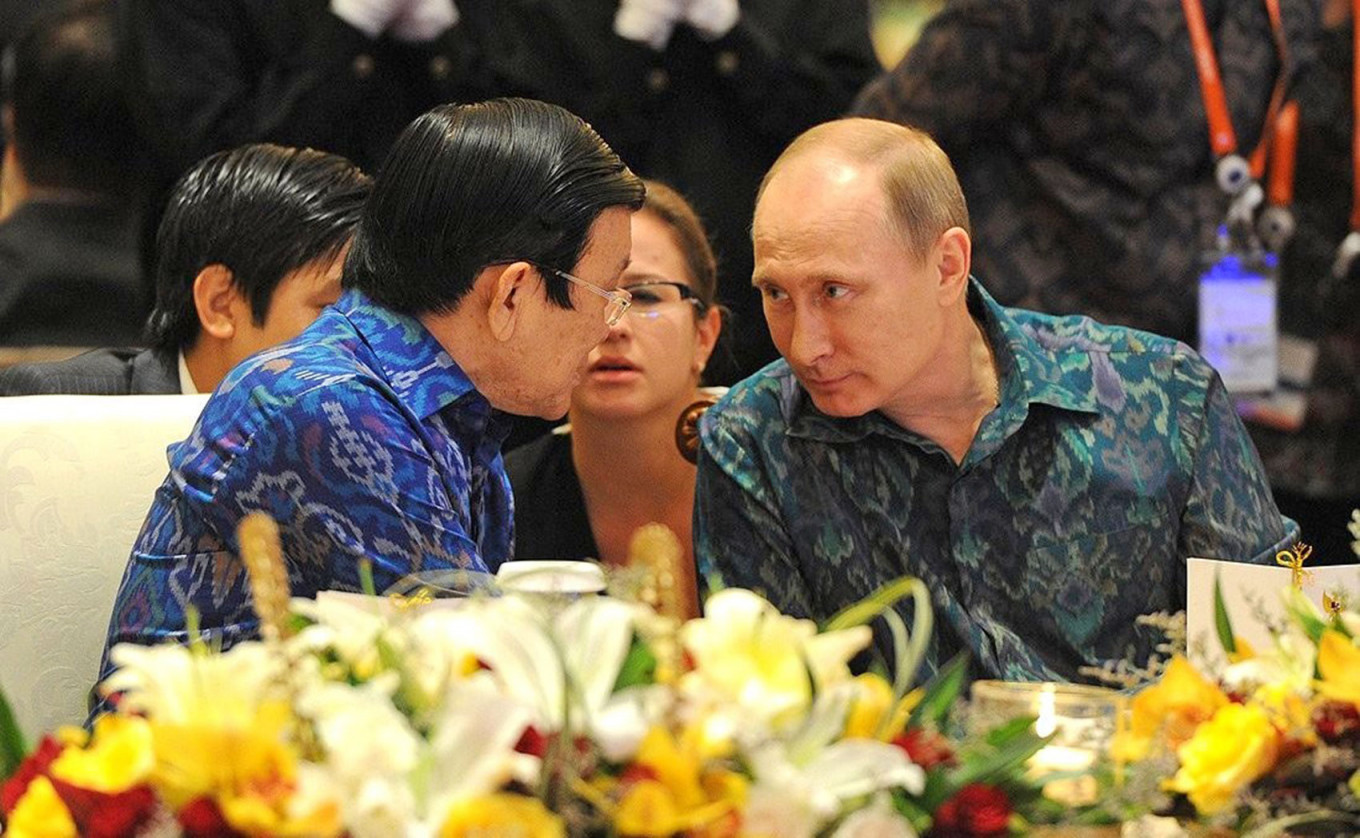
Mobilization has not only seen a sharp dip in Putin’s popularity ratings and caused hundreds of thousands of men to flee abroad, but has even been criticized by Kremlin loyalists.
Putin has so far “failed to offer a solution” to the Ukraine situation, said analyst Gallyamov, referencing Putin’s speech last week in which he announced the annexation of four Ukrainian regions partially occupied by the Russian military.
While Gallyamov said that there was no imminent chance of anti-Putin protests, a protracted war in Ukraine could see his popularity slide.
“When those mobilized men come back in coffins, the attitude will be completely different,” Gallyamov said.
Putin’s 22-year rule has seen Russia gradually move toward greater authoritarianism, but this trend has accelerated rapidly in recent years.
Five years ago, opposition activist Konstantin Andriotis was one of tens of thousands of people who marked Putin’s birthday by taking part in anti-corruption rallies across the country.
It is difficult to imagine such rallies today, with draconian wartime censorship laws outlawing any criticism of what the Kremlin claims is a “special military operation” in Ukraine.
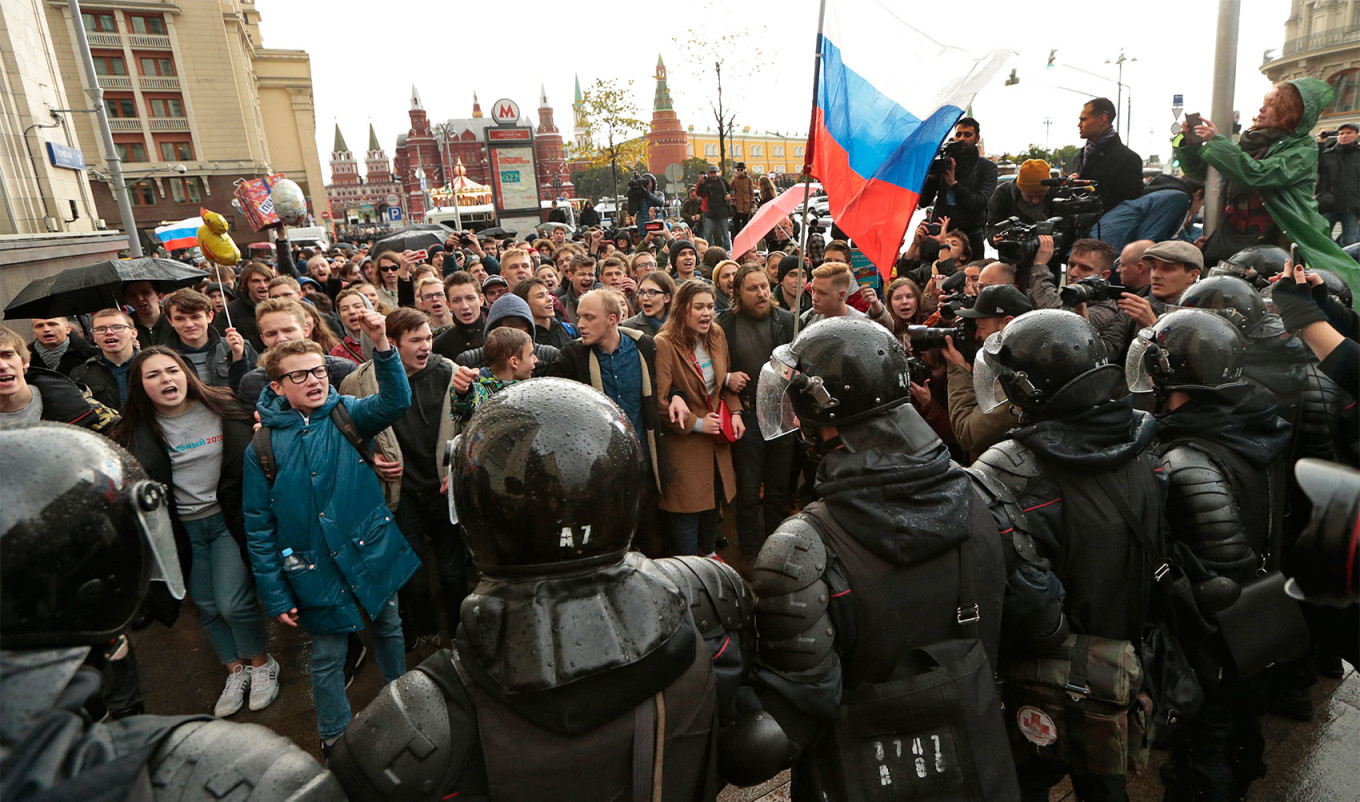
“Imagine the best people of the country, bright educated minds and they all march together. We felt united. When I talk about it now I get goosebumps,” said Andriotis, who fled Russia soon after the war started.
“It was very symbolic to hold the protests on Oct. 7, when Putin turned 65. Our government is obsessed with symbolism and that was a direct challenge.”
Despite his advancing age, there are no signs that Putin has any plans to retire.
Following 2020 amendments to the Russian constitution, he is allowed to seek two more six-year presidential terms — meaning he could remain in power until 2036, when he’ll turn 83.
Elderly leaders are not uncommon in recent Russian history, with former Russian President Boris Yeltsin stepping down at age 68 and Soviet leaders Josef Stalin, Leonid Brezhnev and Yuri Andropov dying in office aged, respectively, 74, 75 and 73.
While Putin retains significant support, there are some who are not keen to see him rule for much longer.
“I decided to congratulate him early… [because this is] bad luck,” Sergei Smirnov, the editor-in-chief of independent media outlet Mediazona, said in a video published Tuesday.
“My wish to him is that this birthday will be his last in the Kremlin.”
A Message from The Moscow Times:
Dear readers,
We are facing unprecedented challenges. Russia's Prosecutor General's Office has designated The Moscow Times as an "undesirable" organization, criminalizing our work and putting our staff at risk of prosecution. This follows our earlier unjust labeling as a "foreign agent."
These actions are direct attempts to silence independent journalism in Russia. The authorities claim our work "discredits the decisions of the Russian leadership." We see things differently: we strive to provide accurate, unbiased reporting on Russia.
We, the journalists of The Moscow Times, refuse to be silenced. But to continue our work, we need your help.
Your support, no matter how small, makes a world of difference. If you can, please support us monthly starting from just $2. It's quick to set up, and every contribution makes a significant impact.
By supporting The Moscow Times, you're defending open, independent journalism in the face of repression. Thank you for standing with us.
Remind me later.



